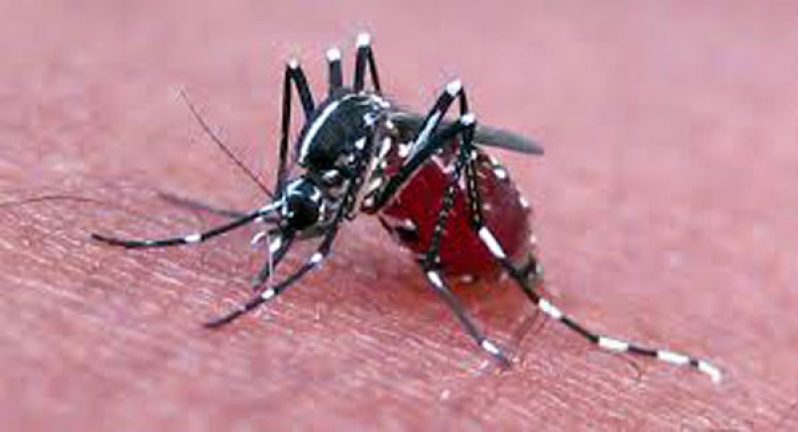THE mosquito-borne disease, Chikungunya, which struck Guyana early last year causing many to fall ill in a short period, has been deemed under control by Head of the Vector Control Unit,Ministry of Health, Dr. Reyaud Rahaman.
Dr. Rahaman told the Guyana Chronicle yesterday, “At the moment, we don’t have a chikungunya problem, because it has been taken care of to some extent as the vector control unit continues to make good strides in [what] we’re doing.”
Additionally, within the period of late last year and present, there have been just over a 100 confirmed cases, which compared to last year shows a big decrease in the number of persons contracting this virus.

“We did significantly well considering how the disease came, and if we had to compare with other Caribbean countries, we did significantly well,” he said. Dr. Rahaman further emphasised that the vector control unit is a functioning department which is always alert, in the event of an outbreak of vector-borne diseases or health emergencies.
Although the virus is not a major threat at the moment, the unit is always on standby with the necessary equipment at hand and adequate human resources which were acquired through various training programmes carried out across the country.
PUBLIC’S ROLE
Dr. Rahaman stated that apart from the Vector Control Unit, the general public also has a role to play in the fight against vector-borne diseases, because the public has greater control over the tidiness and cleanliness of their surroundings.
“Once the disease is contracted, or the vector is infected, it could pass it on from place to place, so therefore, the public plays a huge part in the combat because if they can’t keep their surroundings clean and tidy, it could harbour or create breeding sites for mosquitoes,” said head of the unit.
The mosquitoes that pass on the various vector-borne diseases live right in our houses or yards, so persons are advised to destroy breeding sites such as tall grass, pots or containers which are left exposed to collect water in yards or houses. They should also ensure that water tanks which are left to collect water from gutters are covered with a net or sheet to prevent mosquitoes from breeding .
“Therefore, if the public is vigilant in carrying out the listed practices, they can help us a lot in combating these diseases,” said Dr. Rahaman.
FOGGING EXERCICES
When asked whether or not fogging exercises are being carried out across the country, Dr. Rahaman said that currently, fogging has been suspended for now because of the current rainy weather, but he stated that the exercise is expected to resume in a few weeks, and they intend to cover Georgetown and other areas as much as possible.
He reiterated that “Guyana’s climate with its intermittent rainfall is ideal for the breeding of mosquitoes, so we may not be able to get rid of the mosquito population completely, but we could minimize them by a lot.”
MALARIA CONTROL
Meanwhile, Dr Rahaman stated that over the past few years they have done a lot of work, and since 2013 they’ve been piling in the hours of intense work and“we are now seeing the fruits of our labour.”
According to Dr. Rahaman, they have seen the number of recorded malaria cases being cut in half, stating that prior to the past two decades they have not seen lower cases than what they’ve been seeing now.
In closing, he noted that the Vector Control Unit has been putting the hard work in a technical and scientific way as they continue onwards with the intention of cutting the number of recorded cases not only for malaria, but also for other vector-borne diseases as far as possible.



.jpg)









